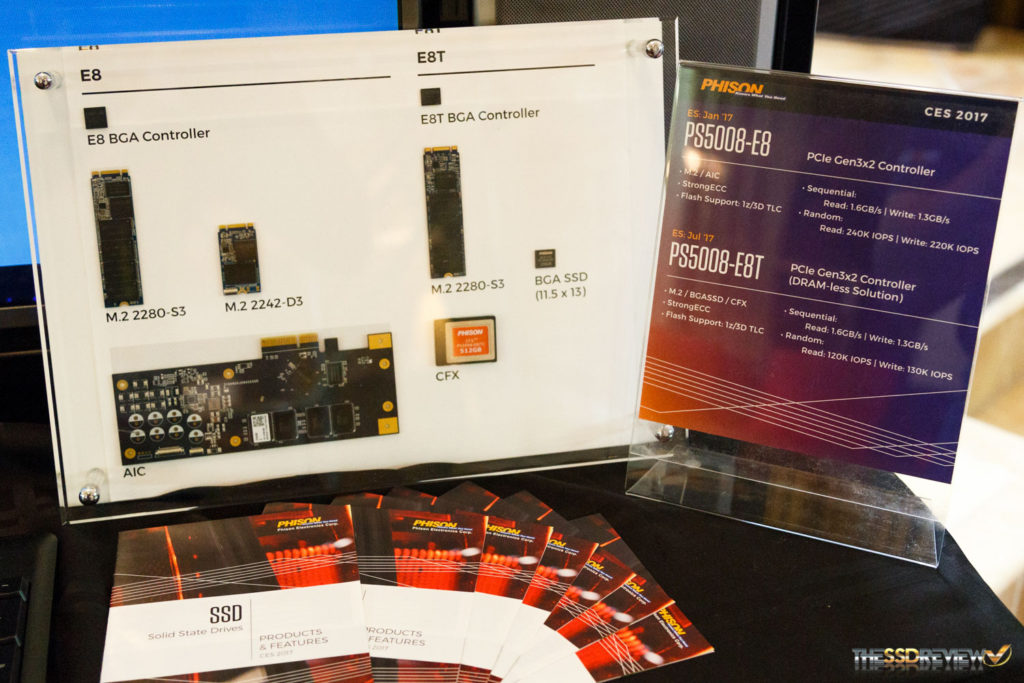When talking about high-performance storage and the controllers that power them, you can be sure that Phison will be in the conversation. Many companies have taken advantage of their E7 NVMe controller to bring out enthusiast class SSDs, such as the Patriot Hellfire, Corsair MP500, and MyDigitalSSD BPX (all of which are in our queue to review). But, as times are moving, Phison wants to go about delivering high performance in a more affordable way, and while doing so, help to drive the transition from SATA to PCIe. How are they going to go about that you may ask? By providing their latest PCIe 3.0 x2 NVMe PS5008-E8 and DRAM-less PS5008-E8T controllers to manufacturers at a similar cost to SATA.
These new controllers offer performance that is three times that of SATA, have the latest 3D NAND flash support, and come with clever firmware algorithms to ensure the data on the flash stays safe and correct. This isn’t the first time they showed off these controllers, but it is the first time we have seen any benchmarks from them. Today at CES, we were able to get a screen shot of them demonstrating an early prototype’s performance.
As you can see the speeds are not quite up to the 1.6/1.3GB/s read/write spec yet, but they are still tweaking the firmware and should be able to achieve them over the next few weeks. They should start sampling to their network of partners in a few months and then we will start seeing products soon after that. We are very excited to see how manufacturers will take advantage of these new controllers. Phison’s BGA version of the E8T is a candidate for a plethora of use cases, and as you can see, they even threw one into a CFX card which can be used by OEMs in the newest tablet and notebook devices. In addition, there was a mention of new controllers by the end of the year, but we will fill you guys in on that when we are able to get more info.
Furthermore, they were showing off their latest UFS, microSD, and USB devices that they help develop for OEMs. Their UFS devices can deliver performance of up to 410MB/s read and 230MB/s write over a PCIe 3.0 interface and their latest MaxIOPS microSD cards were special built to deliver a seamless application experience on android devices can deliver much better IOPS performance than competing products. And, they have a ton of USB 3.1 and Type C devices OEMs can take and manufacturer for themselves. They even built one drive that has three connectors in it where a USB Type C connector is on one end and a normal USB 3.1 and micro USB connector are intergrated as one on the other.
Be sure to keep up to date with us while we continue to check out what is left at CES 2017!
 The SSD Review The Worlds Dedicated SSD Education and Review Resource |
The SSD Review The Worlds Dedicated SSD Education and Review Resource | 

